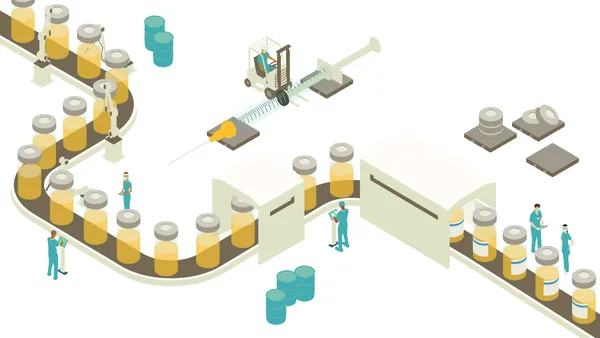Short-Dated Drugs: Pharma’s Options
Contributed by John Matthews
The World Health Organization (WHO) has established guidelines for donating drugs to countries in need. The 12 guidelines are listed below, but the one guideline that is the most problematic for pharmaceutical companies is: “After arrival in the recipient country, all donated drugs should have a remaining shelf-life of at least one-year.” This guideline was established because of logistical problems in many recipient countries. There are limited possibilities for immediate distribution, and it may take as long as six to nine months before drugs reach dispensing sites. A Balancing Act As a consequence, pharmaceutical companies have to perform a careful balancing act when it comes to donating their drugs to countries in need. Most products have 24-month expiration periods, but most major wholesalers won’t buy products with less than 12-month expiration periods. Therefore, pharmaceutical companies need to sell their products within 12 months and donate or destroy the remaining short-dated inventory if they can’t sell it. Some companies try to sell this inventory to specific customers, but the financial incentives involved usually prevent their sales representatives from doing so. The quantities and prices needed to sell these products are simply too low. Some companies don’t exactly comply with WHO guidelines and donate products with less than one year of shelf life remaining. Their reason for donating the products is the tax breaks they can realize through donations. Currently, they can write off two times the product’s cost when they donate it. But this practice is simply not ethical. The WHO has completed several audits in recipient countries and found that 65% of donated drugs were due to expire in less than a year from the date of donation. Another option for pharmaceutical companies is to post their short-dated inventories with an online service that can reach hundreds of licensed pharmaceutical buyers with little effort or cost. Because it may be difficult for some companies to set a price for their short-dated products that will motivate buyers to action, an online service can manage the process by performing useful functions such as accepting bids based on target prices the pharmaceutical companies have set. The company then determines if it wants to accept, refuse, or negotiate to close the deal. This is really just an extension of a company’s salesforce and a centralized location where buyers can do some one-stop shopping. The Guidelines The WHO guidelines are listed below. They are meant to prevent unsolicited, unwanted, and unannounced donations. For more information on these guidelines, visit who.int/en. 1. All drug donations should be based on an expressed need and be relevant to the disease pattern in the recipient country. 2. All donated drugs or their generic equivalents should be approved for use in the recipient country and appear on the national list of essential drugs, or, if a national list is not available, on the WHO Model List of Essential Drugs, unless specifically requested otherwise by the recipient. 3. The presentation, strength, and formulation of donated drugs should, as much as possible, be similar to those commonly used in the recipient country. 4. All donated drugs should be obtained from a reliable source and comply with quality standards in both donor and recipient country. The WHO Certification Scheme on the Quality of Pharmaceutical Products Moving in International Commerce 51 should be used. 5. No drugs should be donated that have been issued to patients and then returned to a pharmacy or elsewhere or were given to health professionals as free samples. 6. After arrival in the recipient country, all donated drugs should have a remaining shelf life of at least one year. 7. All drugs should be labeled in a language that is easily understood by health professionals in the recipient country. The label on each container should contain the generic name, batch number, dosage form, strength, name of manufacturer, quantity in the container, storage conditions, and expiration date. 8. As much as possible, donated drugs should be presented in larger quantity units and hospital packs. 9. All drug donations should be packed in accordance with international shipping regulations and be accompanied by a detailed packing list that specifies the contents of each numbered carton by generic name, dosage form, quantity, batch number, expiration date, volume, weight, and any special storage conditions. The weight per carton should not exceed 50 kg (110 lbs). Drugs should not be mixed with other supplies in the same carton. 10. Recipients should be informed of all drug donations that are being considered, prepared, or actually on their way. 11. In the recipient country, the declared value of a drug donation should be based upon the wholesale price of its generic equivalent in the recipient country or, if such information is not available, on the wholesale world-market price for its generic equivalent. 12. Costs of international and local transport, warehousing, port clearance, and appropriate storage and handling should be paid by the donor agency, unless specifically agreed otherwise with the recipient in advance. John Matthews is President and CEO of ShortMeds, St. Louis, an online service that links manufacturers with short-dated inventories to more than 300 buyers from healthcare distributors, chain drugstores, mail-order companies, independent pharmacies, long-term care pharmacy providers, hospitals, and federal facility providers. For more information, visit shortmeds.com. PharmaVOICE welcomes comments about this article. E-mail us at [email protected].











